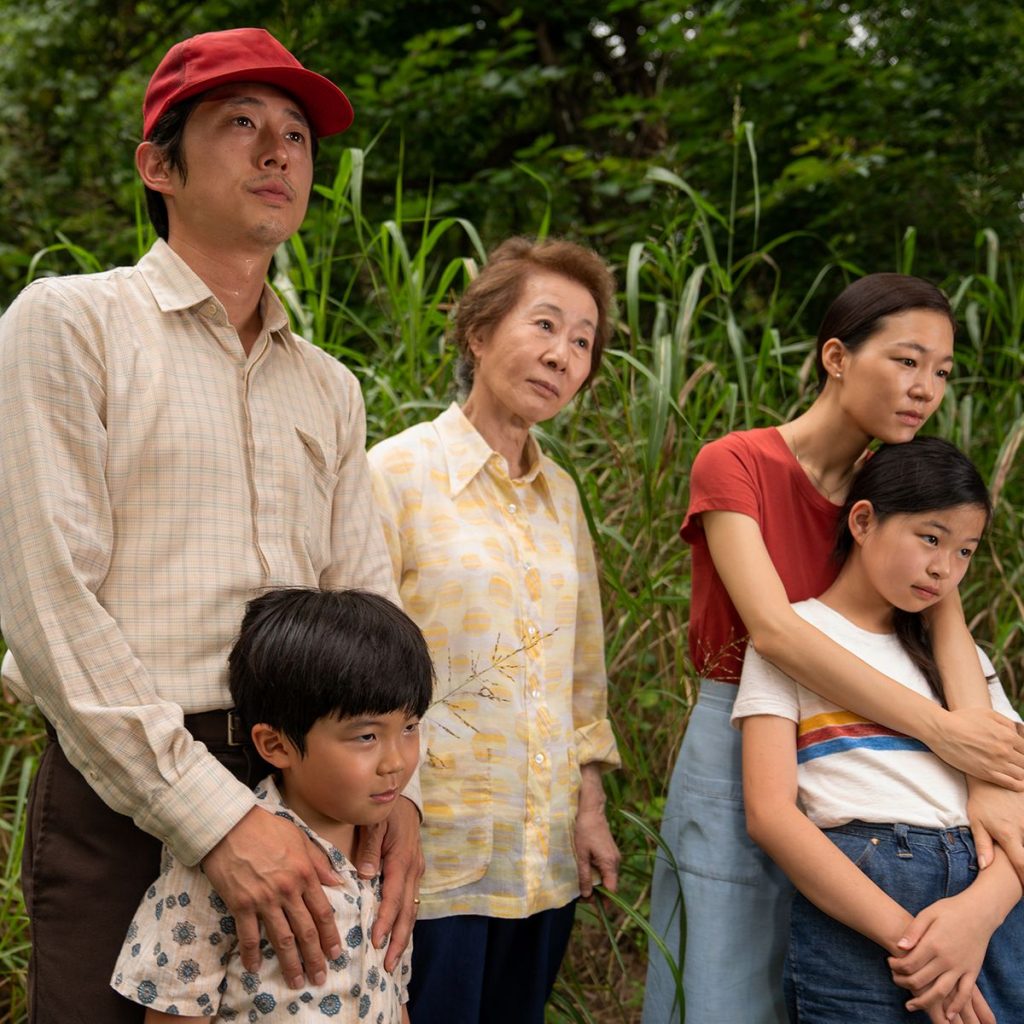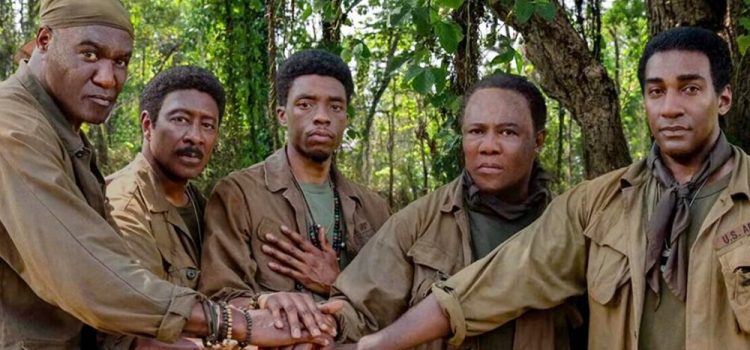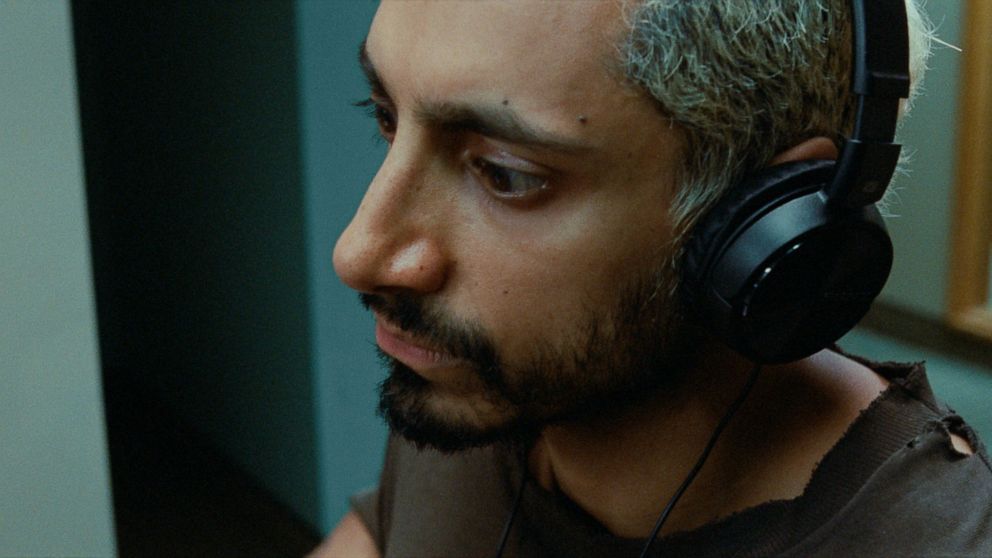By Lynn Venhaus
A semi-autobiographical journey about his childhood in Arkansas in the 1980s, writer-director Lee Isaac Chung has crafted a series of genuine remembered moments that resonate, especially from young son David’s point of view. The story may be slender but its sensitivity is significant.
A Korean American family has moved to a rural Arkansas farm in search of its own American dream. Trying to adapt to a new life, with its challenges and unfamiliar terrain, they learn how resilient they can be and what really makes a home.
As precocious David, Alan S. Kim stomps around in cowboy boots, soaking up everything as he drinks Mountain Dew and blurts out exactly how he feels and what he means. Kim is a natural, and just watching how he looks at everything in a curious light, is just one of the film’s many delights. He translates his emotions subtly and superbly.
At first, David has a testy relationship with his grandmother, Soonja (Youn Yuh-jong), his mom’s mother who has come over from Korea to live with them. But their relationship blossoms and their bond is tight – and neither has a filter.
Youn Yuh-jong delivers one of the best performances of the year as the grandma, whose love, strength and wisdom is a saving grace. She is also wickedly funny, providing welcome moments of comic relief.
In a poignant performance, Steven Yeun plays Jacob, who tries to hold on to his farm and his family in the face of great adversity. He moves them from California to the middle of nowhere because he wants more for them – and himself.
But his wife, Monica (Yeri Han), has a harder time and is frustrated that she is forced to fit in to a life she is apprehensive about, and worries about everything. After all, David was born with a heart murmur and a hospital is miles away.
The fine ensemble sincerely draws us in to their heartbreaks, happiness and sorrows. Character actor Will Patton plays a Pentecostal neighbor who helps Jacob with the farm, and the character is based on Chung’s father’s friend.
“Minari” won both the Audience and the Grand Jury Awards at the 2020 Sundance Film Festival, and as a contender in the current awards season, audiences are discovering how relatable a film, which is in English subtitles for about half of it, is. The family is bilingual.
The production elements are also outstanding in helping to strike a universal chord, with lyrical cinematography by Lachlan Milne and crisp editing by Harry Yoon. Production designer Yong Ok Lee creates the ‘80s home from a ramshackle trailer to a family of four’s personalities within their economic means.
Composer Emile Mosseri’s beautiful score evokes youthful memories and warmth.
The film’s namesake, minari, also known as “water dropwort,” is a resilient plant with an herbal flavor, tasting like parsley. With its crisp stems and leafy tops, it can grow pretty much anywhere, and is sold as a vegetable in Korean markets. Its meaning is obvious.
With its poetic small moments, what the deeply personal “Minari” says about roots and family echoes with all of us.

“Minari” is a drama written and directed by Lee Isaac Chung. It stars Steven Yeun, Alan S. Kim, Yeri Han, Youn Yuh-jung, Noel Cho and Will Patton. Rated: PG-13 for some thematic elements and a rude gesture, it’s run time is 1 hr. 58 min. Lynn’s Grade: A. In theaters Feb. 12 and video on demand Feb. 26.

Lynn (Zipfel) Venhaus has had a continuous byline in St. Louis metro region publications since 1978. She writes features and news for Belleville News-Democrat and contributes to St. Louis magazine and other publications.
She is a Rotten Tomatoes-approved film critic, currently reviews films for Webster-Kirkwood Times and KTRS Radio, covers entertainment for PopLifeSTL.com and co-hosts podcast PopLifeSTL.com…Presents.
She is a member of Critics Choice Association, where she serves on the women’s and marketing committees; Alliance of Women Film Journalists; and on the board of the St. Louis Film Critics Association. She is a founding and board member of the St. Louis Theater Circle.
She is retired from teaching journalism/media as an adjunct college instructor.




